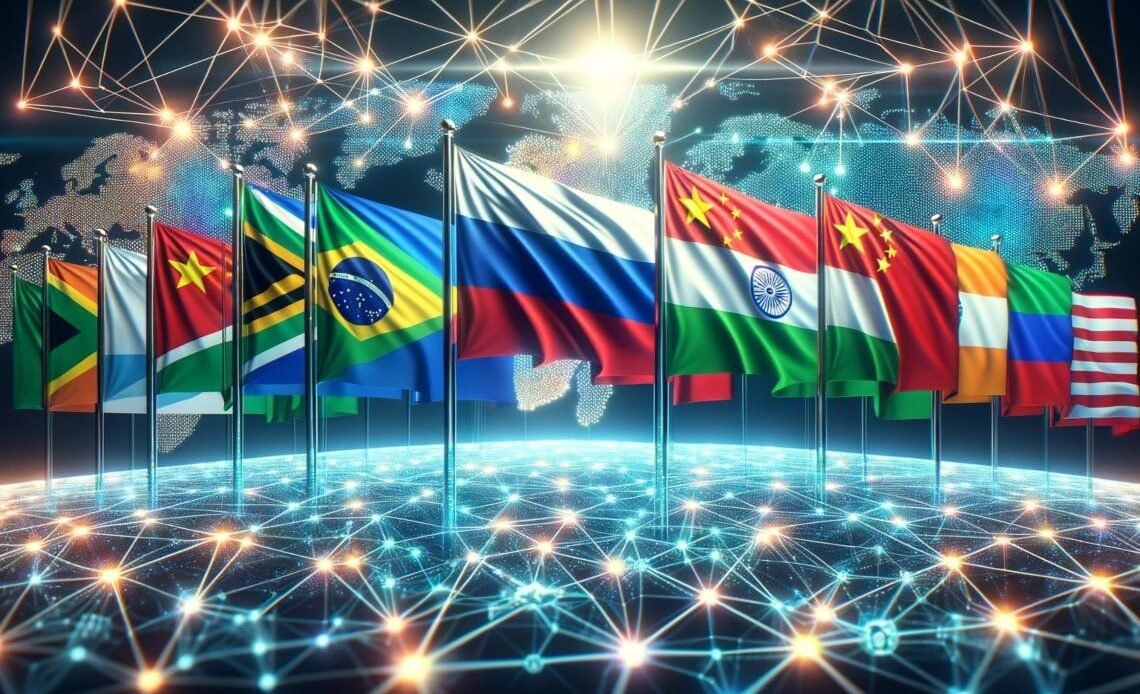Nicola Duffy, writer and economical journalist
In its quest to promote economic growth, shared prosperity, and technological advancement, the BRICS (Brazil, Russia, India, China, and South Africa) countries have undertaken a groundbreaking initiative to harness the potential of blockchain technology. This new project aims to revolutionize traditional systems and establish an ecosystem of trust, transparency, and efficiency. Let’s delve into the details of the BRICS’ investment in blockchain and its implications for these emerging economic powerhouses.
Understanding Blockchain Technology
At its core, blockchain is an incorruptible and immutable digital ledger that records transactions across multiple computers. Each transaction, known as a block, is connected to the previous block, creating a chain of records. This decentralized ledger system ensures transparency, eliminates the need for intermediaries, and provides a secure environment for data exchange. With its potential to disrupt various sectors such as finance, healthcare, supply chain, and governance, blockchain technology has garnered considerable attention worldwide.
BRICS’ Vision for Blockchain
Recognizing the transformative power of blockchain, the BRICS countries have collaborated to exploit this nascent technology to its fullest potential. The alliance seeks to utilize blockchain as a catalyst for their economic growth and strengthen their bond as emerging market economies. By doing so, BRICS aims to propel themselves into becoming global leaders in the blockchain sphere.
Key Objectives of BRICS’ Blockchain Project
- Financial Inclusion and Efficiency: The BRICS countries intend to leverage blockchain capabilities to foster financial inclusion, digitize assets, improve cross-border transactions, and reduce remittance costs. Blockchain’s decentralized nature allows for the development of secure and affordable financial services, particularly in regions with limited banking infrastructure.
- Trade Facilitation and Supply Chain Optimization: Blockchain can revolutionize international trade by enhancing transparency, improving customs clearance, and combating counterfeit products. By establishing a unified blockchain framework, BRICS aims to streamline trade procedures and enhance cooperation among member states, leading to mutual benefits and growth opportunities.
- E-Governance and Digital Identity: Blockchain holds tremendous potential in redefining governance by providing a secure platform for citizen services, voting systems, and record-keeping. The BRICS’ blockchain project aims to enable efficient, secure, and transparent e-governance practices, ensuring trust in public services and fostering citizen engagement.
- Research and Development: Recognizing the importance of continuous innovation, the BRICS’ blockchain initiative seeks to facilitate collaborative research and development efforts amongst member states. This will involve sharing knowledge, expertise, and best practices to propel blockchain technology forward, ultimately benefiting not only the BRICS countries but the global community as well.
Challenges and Opportunities
While the embrace of blockchain promises numerous advantages, BRICS must address significant challenges to ensure successful implementation. The most pressing concerns include regulatory frameworks, cybersecurity, scalability, and privacy issues. Moreover, given the decentralized nature of blockchain, cooperation and harmonization among BRICS states will be crucial to create a unified blockchain ecosystem. By addressing these challenges collectively, BRICS will set the stage for substantial economic growth, technological advancement, and increased cooperation.
The BRICS nations’ adoption of blockchain technology marks a noteworthy step towards creating a global digital economy that prioritizes trust, transparency, and efficiency. By leveraging the transformative power of blockchain, these emerging economies are on the cusp of reinventing traditional systems and fostering innovation across various sectors. As the BRICS’ commitment to blockchain deepens, the potential for collaboration, shared prosperity, and a technological revolution becomes increasingly tangible.
This article is exclusively for Mideast Discourse



